Review of spreadsheet user interfaces
You can find these images with a quick image search, but I wanted examples of each on one place so I can see the general UI patterns. What are the common elements that a user would see when using them? What do they have in common beyond the grid?
You can find these images with a quick image search, but I wanted examples of each in one place so I can see the general UI patterns. What are the common elements that a user sees? What do they have in common beyond the grid?
I should mention that a good number of these screenshots came from WinWorldPC.com, which is a great archive of all sorts of old software.
Here we go, roughly in in chronological order.
Table of object glasses from 1665
Let’s start off not entirely at the beginning, but pretty far back. What strikes me is that we have been struggling with vertical layouts for a long time. 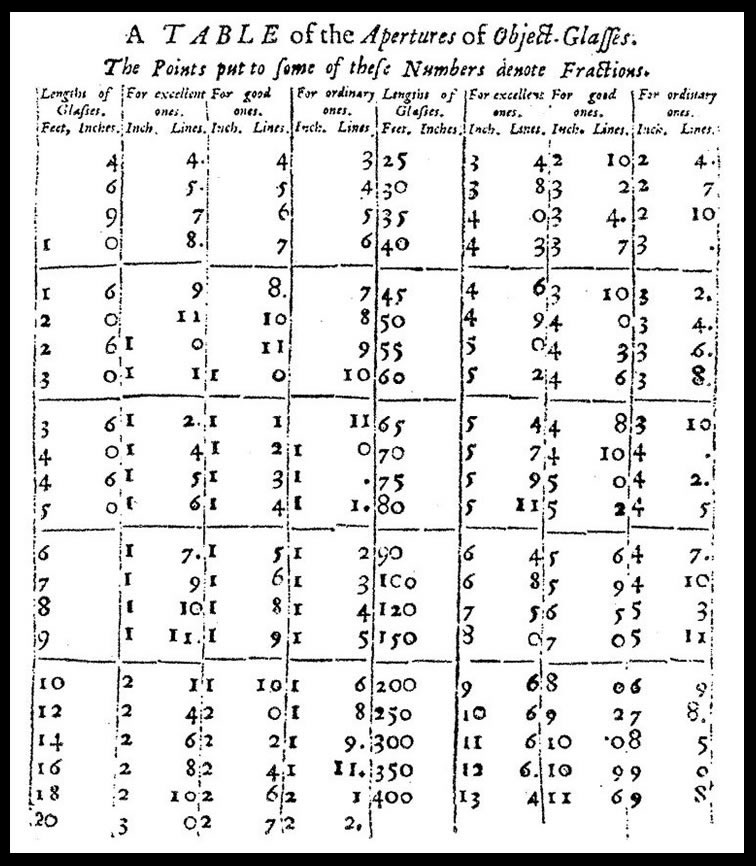 Source: Wikipedia
Source: Wikipedia
1700’s German ledger
A german ledge containing financial transactions. It probably conforms to the FAST Standard more strictly than many .xlsx files. 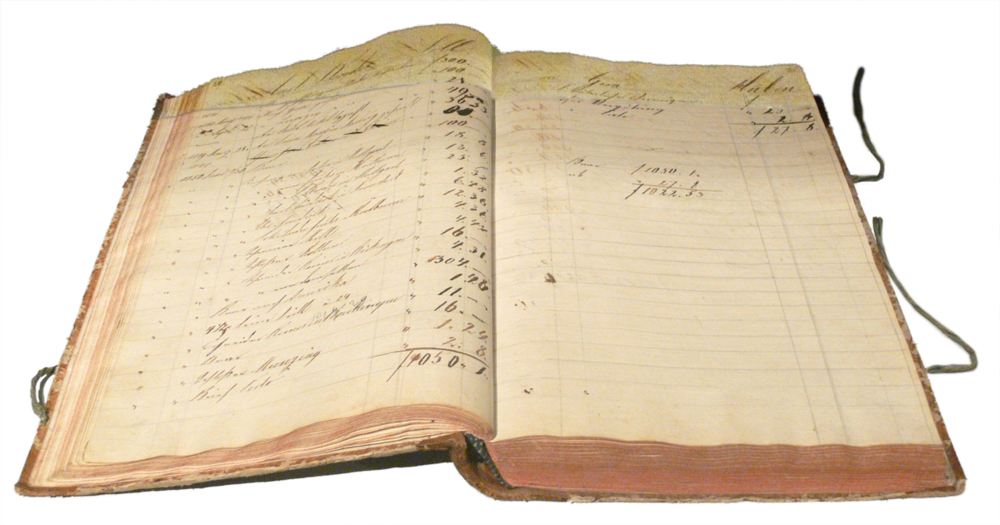 Source: Wikipedia
Source: Wikipedia
Lotus 1-2-3 for MS DOS
I like the simplicity of Lotus-1-2-3 and other MS-DOS sheets. Nothing is hidden. Menus and interactions are clear. The surface area - literally and figuratively - is small. 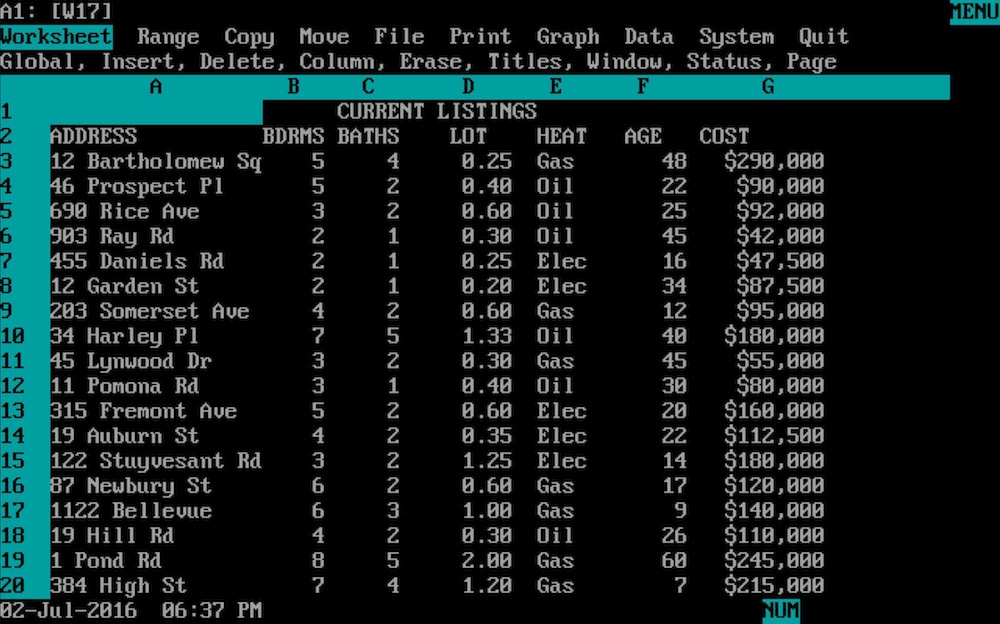 Source: Twitter - Anatoly Shashkin - @dosnostalgic
Source: Twitter - Anatoly Shashkin - @dosnostalgic
Multiplan for MS DOS
I’ve never used Multiplan, but as far as I can tell, grids have column numbers instead of letters, and you can have multiple grid listed sequentially, each capped at a certain number of rows. I can imagine this would be convenient when it came to adding a section for aggregation calculations.  Source: winworldpc.com
Source: winworldpc.com
Better Working Eight-in-One for MS-DOS
Better Working Eight-in-One, from Spinnaker Software is an integrated office suite for DOS. It contains a word processor, a spelling checker, a data base, a spreadsheet, an outliner, a graphics program, a communications program and a set of desktop utilities - all in one single, consistent application.
- WinWorldPC.com
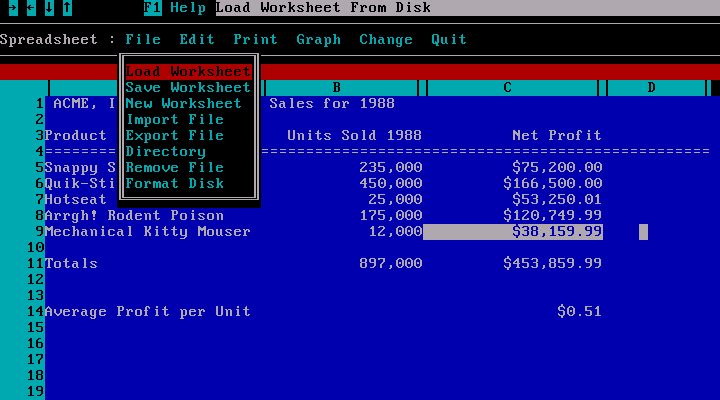 Source: winworldpc.com
Source: winworldpc.com
Boeing Calc 300E
Did you know that Boeing made a spreadsheet product back in the 1980’s? 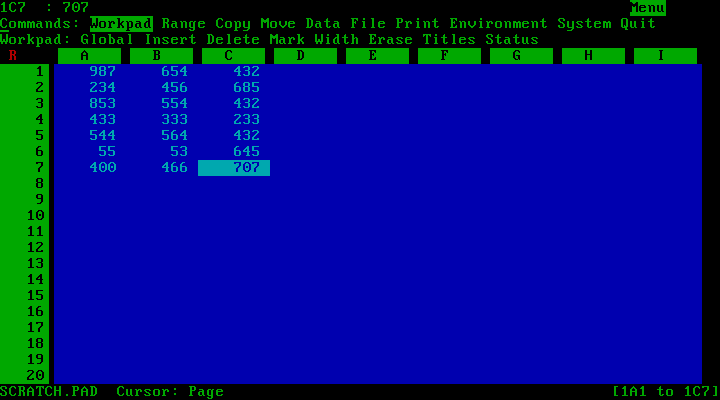 Source: winworldpc.com
Source: winworldpc.com
Javelin Plus 1.0
This one is billed as an “analysis and reporting tool” but it looks a lot like a spreadsheet. The key difference is that columns are named by what they represent rather than a sequential index. 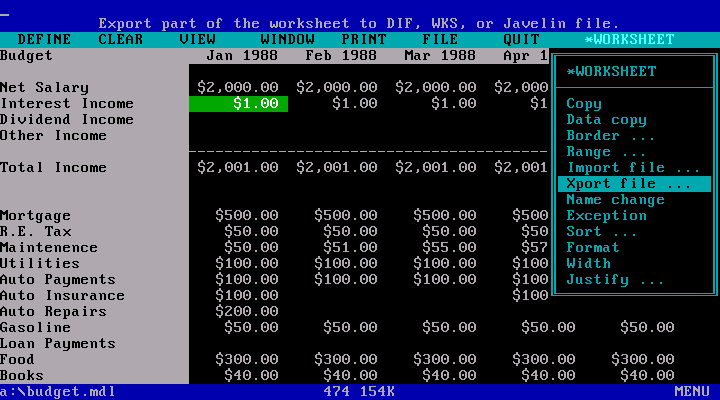 Source: winworldpc.com
Source: winworldpc.com
Ability 1.0
Check out Ability for a free working version! 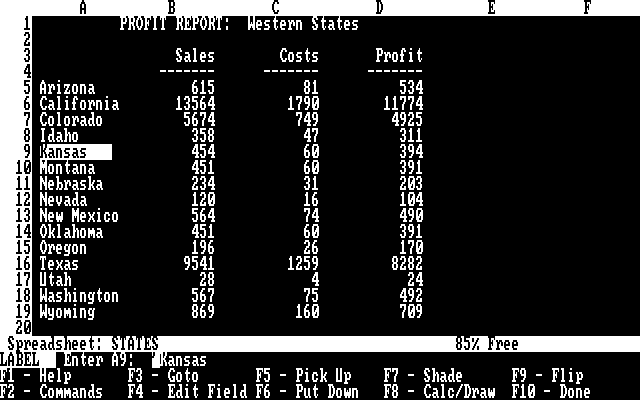 Source: winworldpc.com
Source: winworldpc.com
AppleWorks 5.0
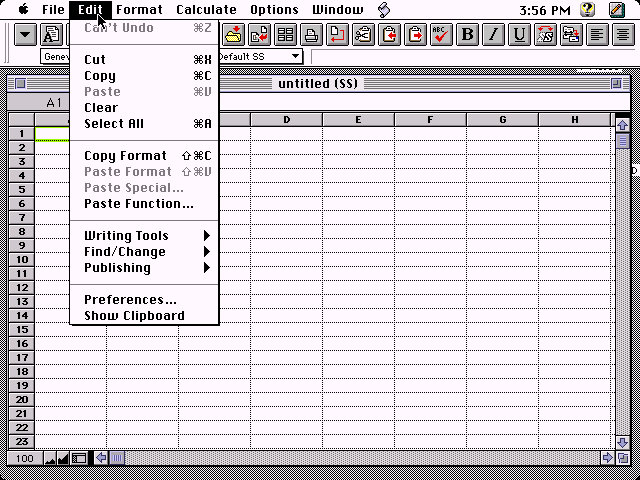 Source: winworldpc.com
Source: winworldpc.com
Borland Office 2.0 For Windows 3.1
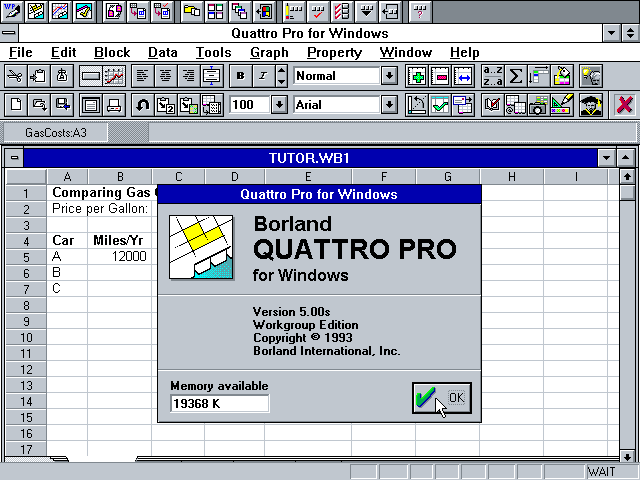 Source: winworldpc.com
Source: winworldpc.com
CA Compete! 4.2
It looks like a spreadsheet that is cell based, but it’s actually based on objects, meaning you have to reference data by name of the object/model. This seems like it would limit the free-form intention of a spreadsheet, but also keep you from making mistakes. 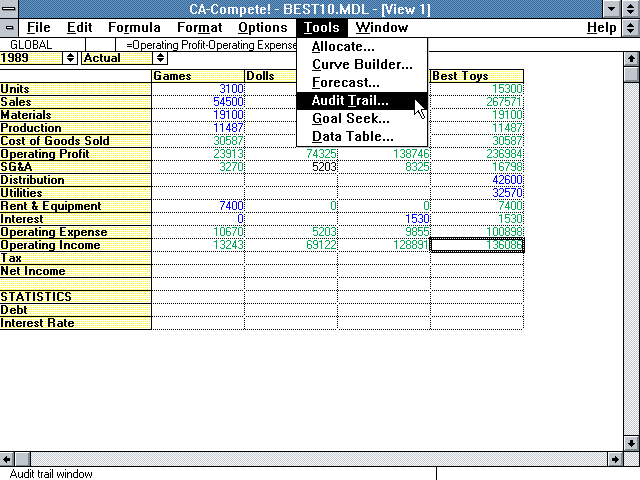 Source: winworldpc.com
Source: winworldpc.com
Corel Office 7 / Correl Quattro Pro 7
Essentially the same version of the same spreadsheet product, but sold with different software packages. 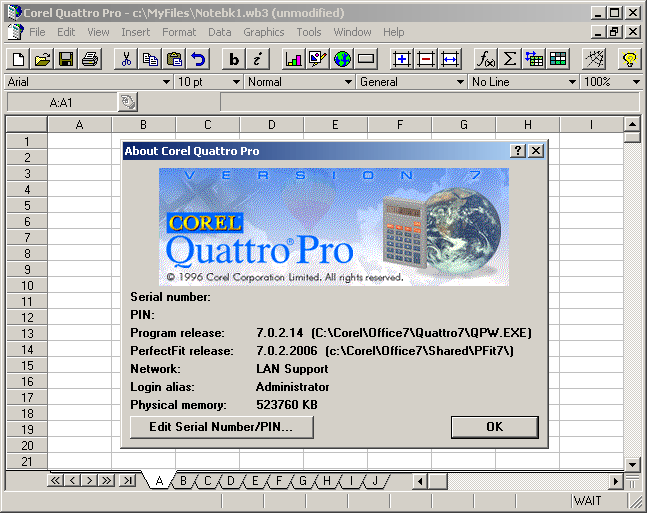 Source: shoplack.com
Source: shoplack.com
Lotus Improv
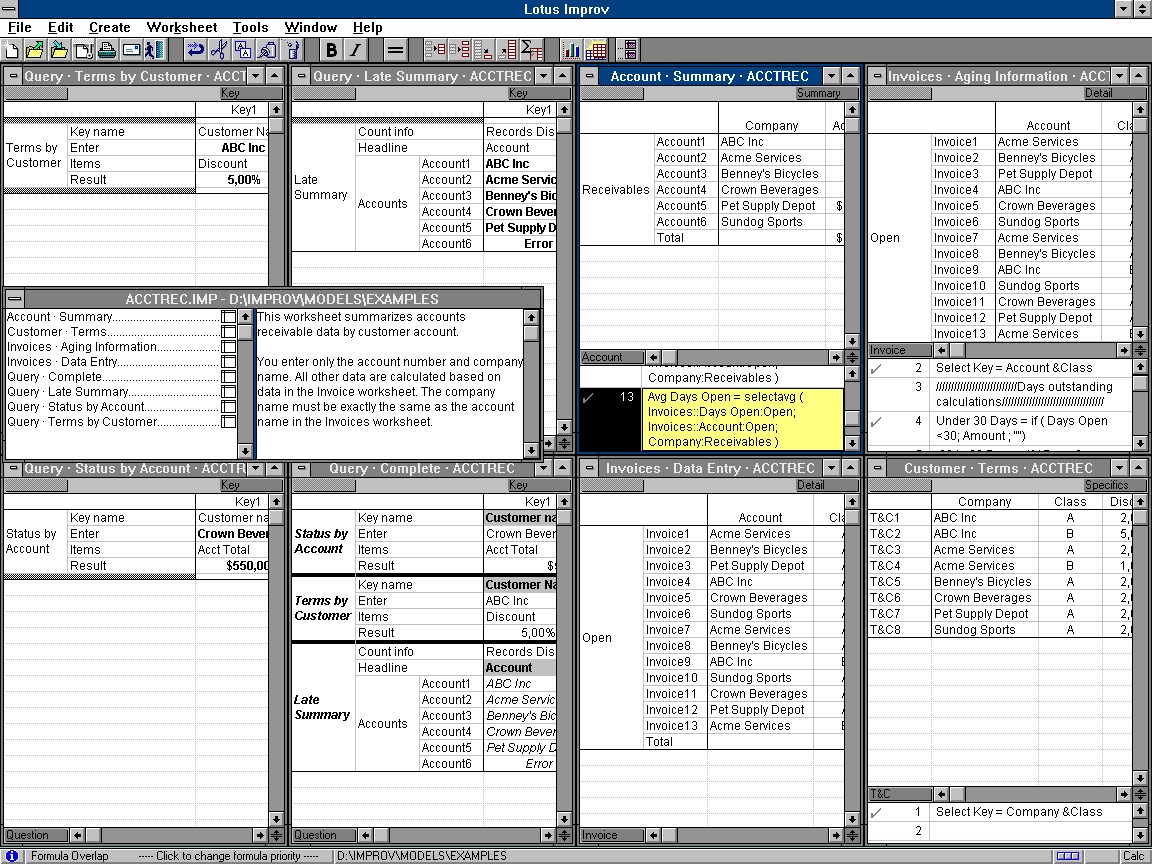 Source: alternativeto.net
Source: alternativeto.net
Excel 1.0
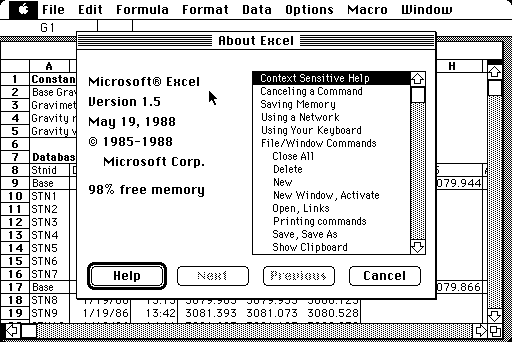 Source: winworldpc.com
Source: winworldpc.com
Excel 2.0
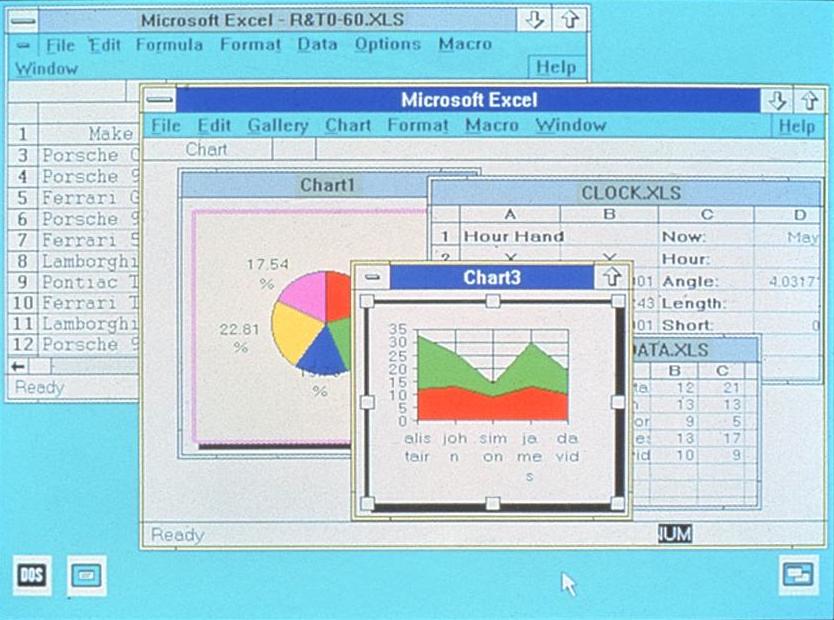 Source: Microsoft
Source: Microsoft
Excel 4.0
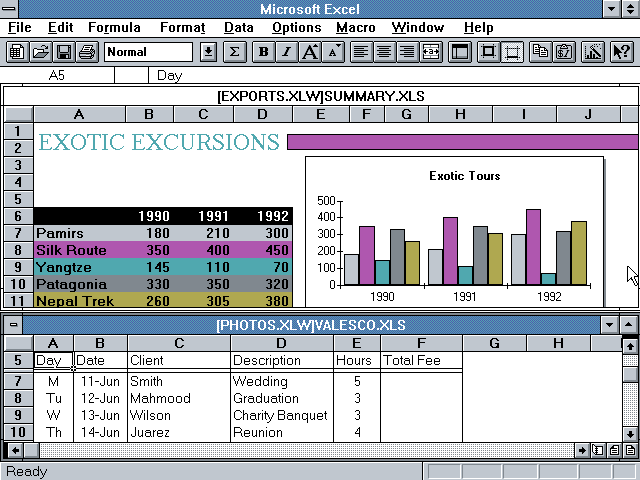 Source: winworldpc.com
Source: winworldpc.com
Excel 5.0
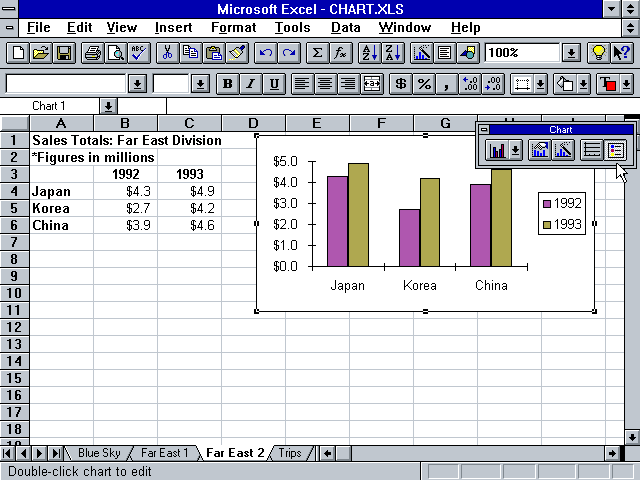 Source: winworldpc.com
Source: winworldpc.com
Excel 95
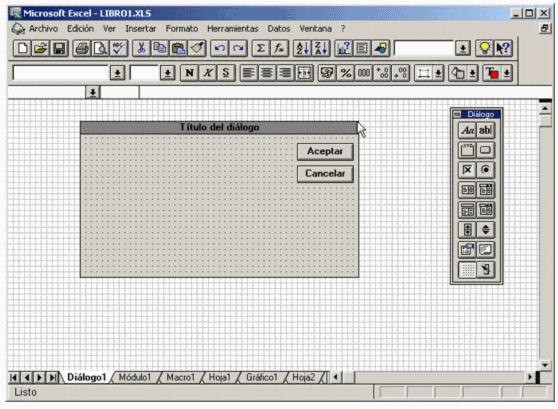 Source: trucosycursos.es
Source: trucosycursos.es
Excel 97
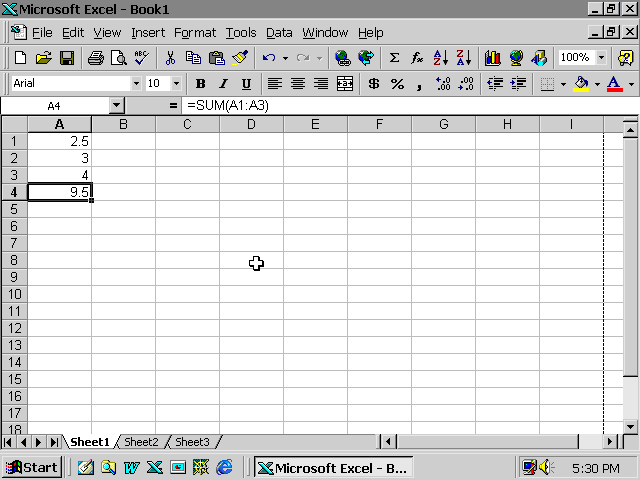 Source: marintellect.com
Source: marintellect.com
Excel 2000
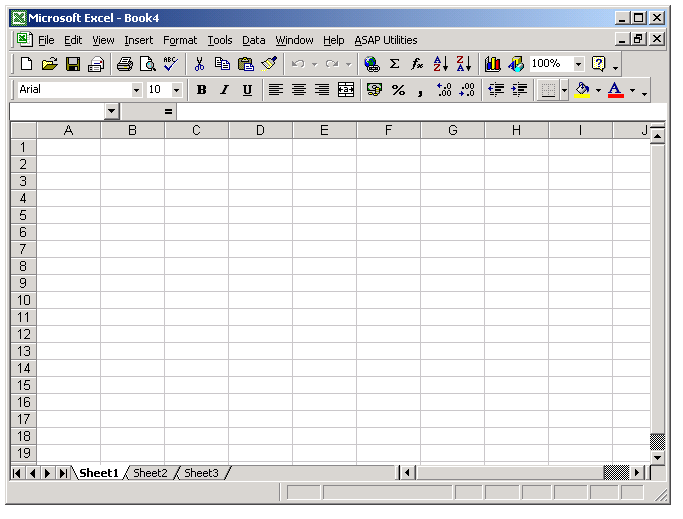 Source: asap-utilities.com
Source: asap-utilities.com
Excel 2002
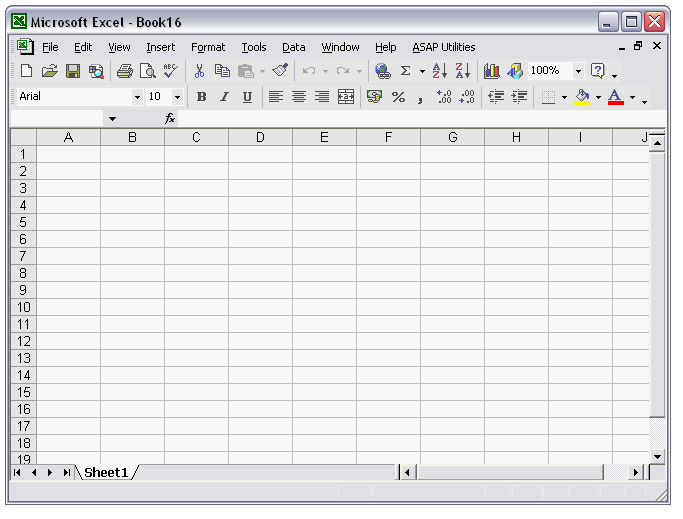 Source: asap-utilities.com
Source: asap-utilities.com
Excel 2003
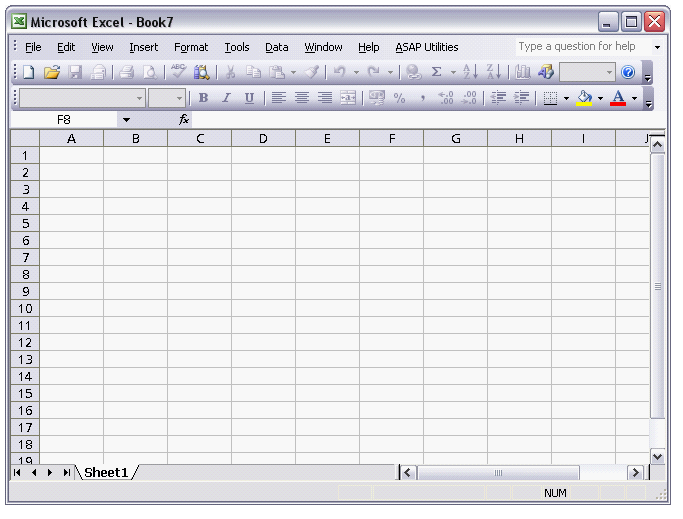 Source: asap-utilities.com
Source: asap-utilities.com
Excel 2007
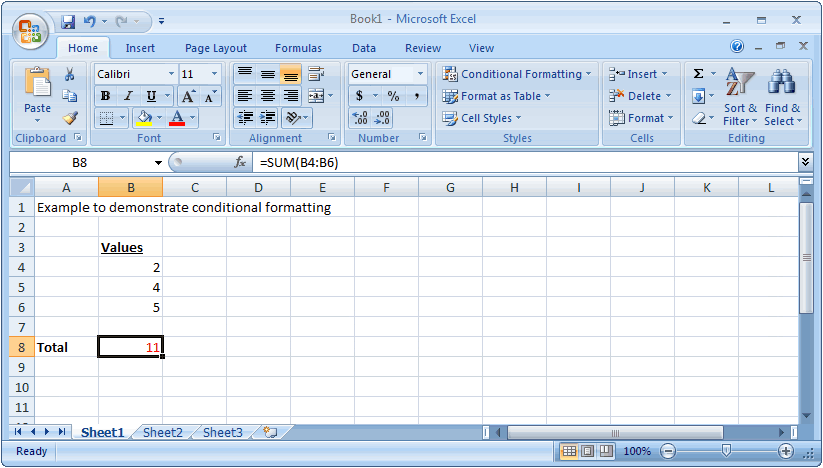 Source: techonthenet.com
Source: techonthenet.com
Excel 2010
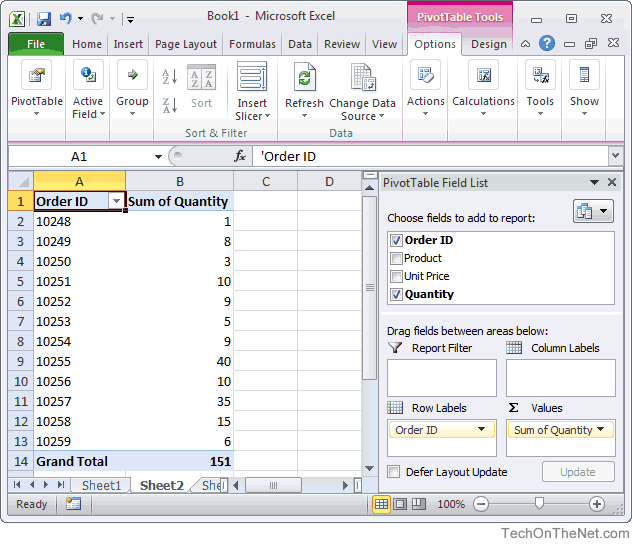 Source: techonthenet.com
Source: techonthenet.com
Excel 2013
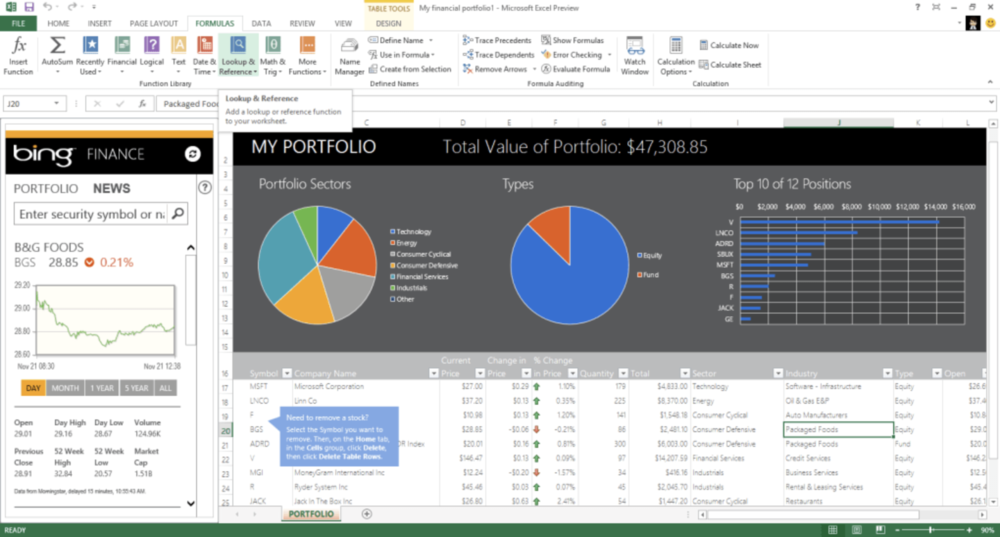 Source: softonic.com
Source: softonic.com
Excel 2016
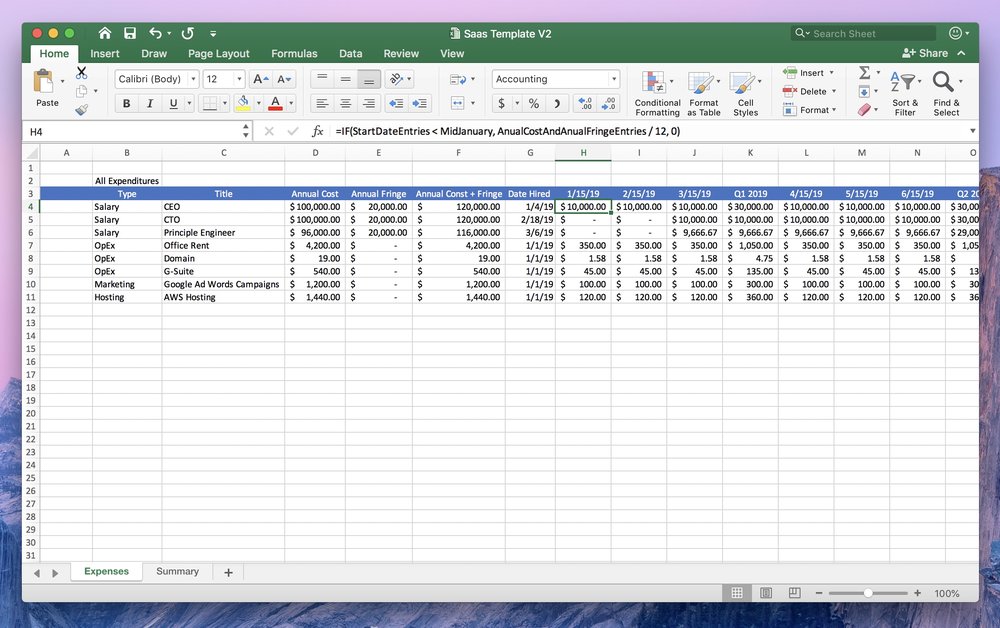
OpenOffice Calc
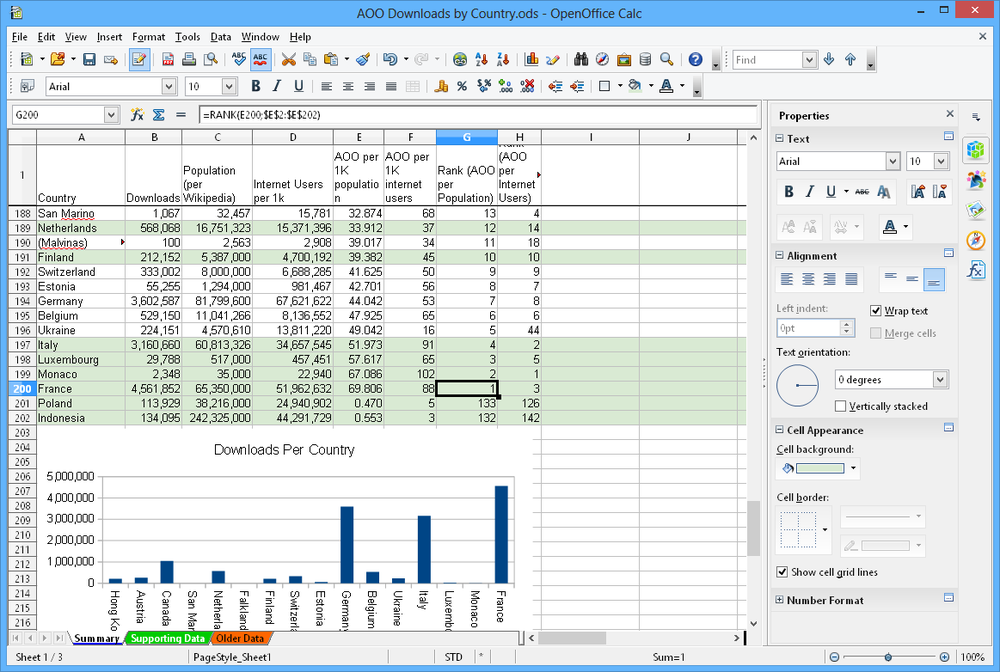 Source: openoffice.org
Source: openoffice.org
Google Sheets 2019
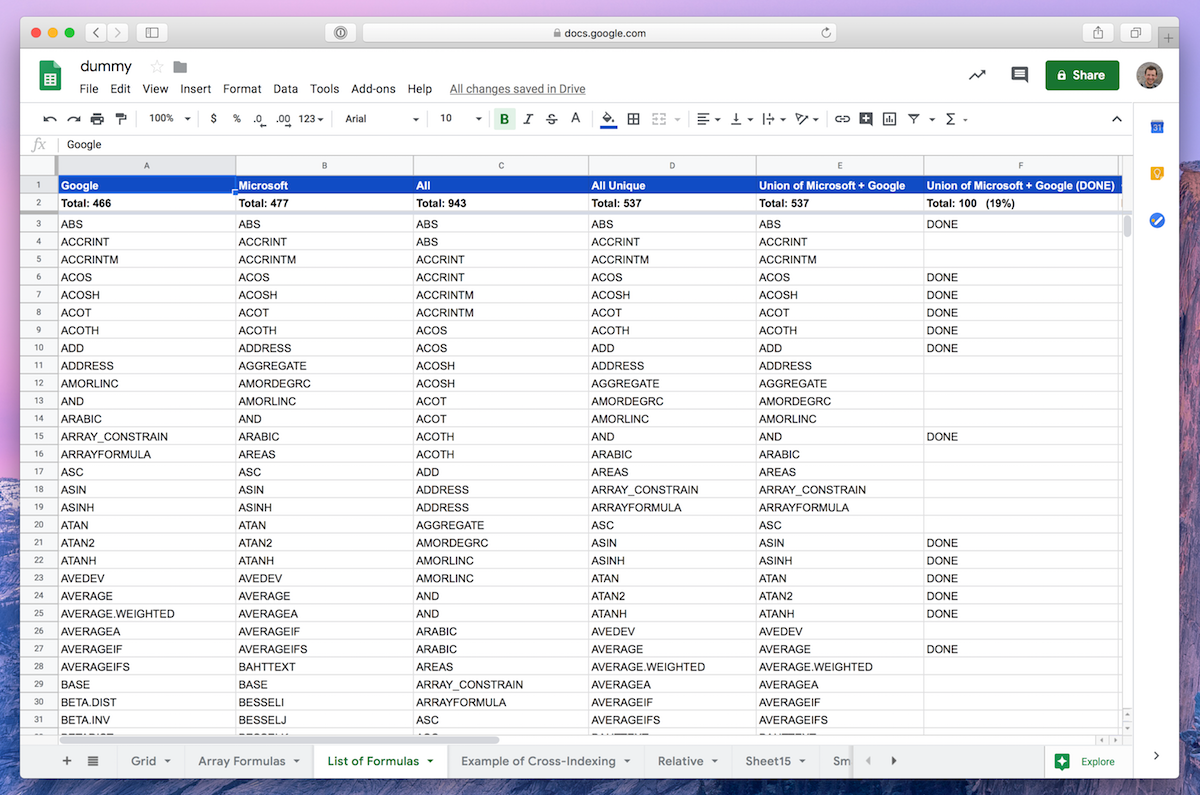
Airtable 2019
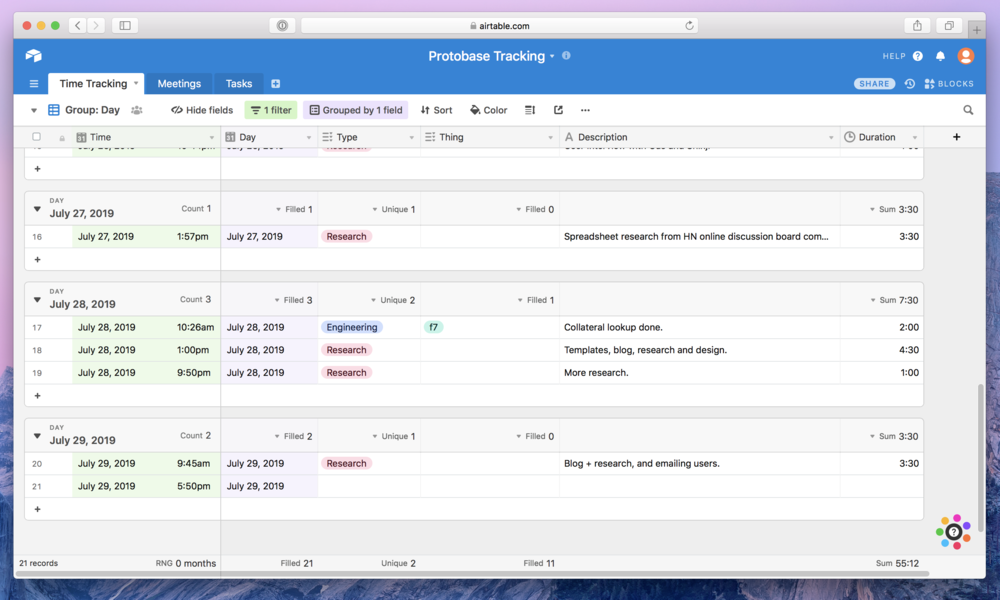
Scheme In A Grid - 2019
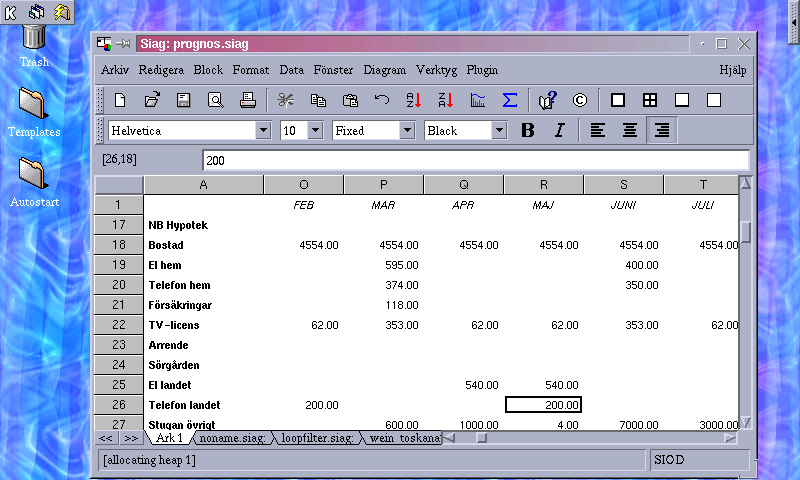 Source: siag.nu
Source: siag.nu
VisiData
VD is one of the best tools to get a handle on plaintext tabular data straight from the command line. If you’ve literally got a minute, check out VisiData In 60 Seconds. 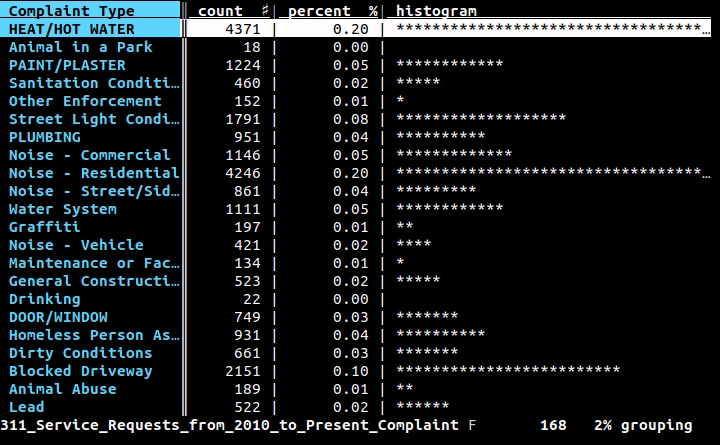 Source: visidata.org
Source: visidata.org